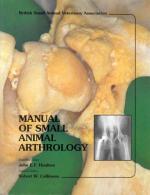|
This section contains 832 words (approx. 3 pages at 300 words per page) |

|
FICHTE, JOHANN GOTTLIEB (1762–1814), was a German Idealist philosopher and religious thinker. Usually remembered mainly for his part in the development of German Idealism from Kant to Hegel and for his contribution to the rise of German national consciousness, Fichte is also an important figure in European religious thought at the end of the Enlightenment. Born in Rammenau (Lausitz), he enrolled in the University of Jena as a student of theology when he was eighteen. During his studies and a subsequent period as a private tutor in Zurich, he was apparently unacquainted with Kant's philosophy and seems to have been a determinist who admired Spinoza. Returning to Leipzig in 1790, he began a study of Kant that led to his conversion to Kantian practical philosophy. His fragmentary "Aphorismen über Religion und Deismus," written at this time, reveals his concern with the tension between simple Christian piety...
|
This section contains 832 words (approx. 3 pages at 300 words per page) |

|


